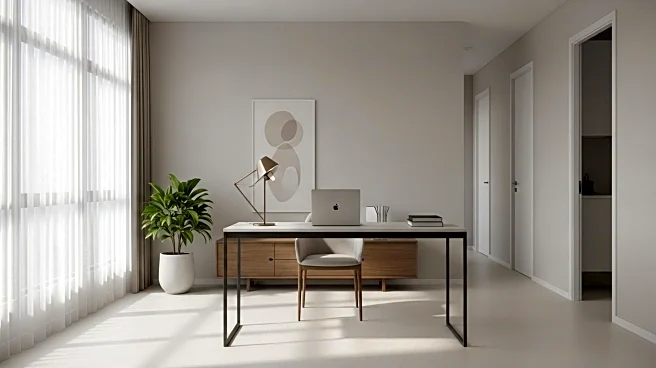What's Happening?
Young tech founders are embracing minimalist lifestyles despite the influx of venture capital funding due to the AI boom. Many are choosing to live in live/work spaces with minimal furniture, often using air mattresses and simple living arrangements. This trend is exemplified by Regina Lin, cofounder of ThirdLayer, who operates out of a loft previously occupied by another startup. The loft serves as both an office and living space, with standing desks and a common area for social media content creation. Lin and her colleagues prioritize work over household chores, as evidenced by their reliance on instant noodles and plastic utensils. This lifestyle choice reflects a focus on work efficiency and company culture, with Lin even incorporating a cat into the workspace for morale.
Why It's Important?
The minimalist lifestyle adopted by these tech founders highlights a shift in priorities among young entrepreneurs. Despite significant financial backing, they are choosing to invest in their businesses rather than personal comforts. This approach may influence the broader startup culture, emphasizing dedication and resourcefulness over traditional markers of success. It also reflects a growing trend of work-life integration, where personal and professional spaces merge to foster creativity and productivity. As the AI industry continues to expand, these founders' choices could set a precedent for future entrepreneurs, impacting how startups allocate resources and define success.
What's Next?
As the AI industry grows, these founders may face challenges balancing their minimalist lifestyles with increasing business demands. The integration of personal and professional spaces could lead to burnout if not managed carefully. Additionally, as their companies expand, they may need to reconsider their living arrangements to accommodate larger teams and more complex operations. The success of these founders could inspire others to adopt similar lifestyles, potentially leading to a cultural shift in the startup ecosystem. However, the long-term sustainability of such living arrangements remains uncertain, and founders may need to adapt as their businesses evolve.









